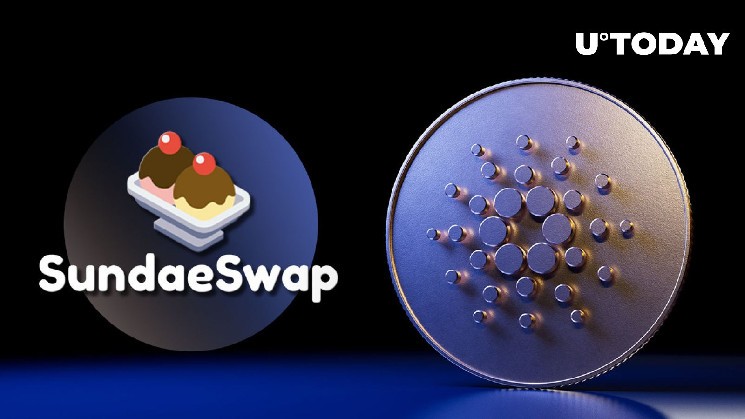Cardano (ADA) and Governance Proposal by SundaeSwap, Here’s What’s New

SundaeSwap is a prominent decentralized exchange operating on the Cardano Network (ADA). Utilizing the power of smart contract technology, it offers scalable trading opportunities to its users. As with other decentralized exchanges, it utilizes liquidity pools where participants can earn profits by supporting the platform. Recently, SundaeSwap has made a significant step toward its governance model.
Governance on the cryptocurrency market refers to the decision-making process and the creation of rules for the operation of crypto networks or decentralized applications (dApps). This encompasses protocol updates, technical issue resolution, resource distribution and other crucial aspects that impact the network’s stability and integrity.
At present, the exact workings of SundaeSwap’s governance process have not been defined, despite the platform’s decentralized nature and its governance token. As such, SundaeSwap Labs has proposed the use of a nonblockchain-based audible governance technology, accompanied by a set of rules for consideration, voting and approval of proposals for the platform’s future.
If these rules are approved by Feb. 19, 2023, the process for submitting proposals for improvement will be established. For instance, those wishing to suggest changes must hold at least 10,000 SUNDAE tokens, equivalent to $180 at the current exchange rate. To cast a vote on a proposal, investors can have any amount of SUNDAE in their portfolio.
These requirements reinforce the importance of SUNDAE as a governance asset. It is worth noting that all governance procedures at SundaeSwap can be revised through a vote by its members at any time.
Hope for SundaeSwap?
Effective governance is crucial for decentralized protocols as it promotes community involvement in the project’s evolution and eliminates the influence of a single central entity. However, a poor governance structure can lead to centralization of tokens by larger companies and impact decision-making processes.
Unfortunately, SundaeSwap faced challenges early on that hindered its growth compared to newer decentralized exchanges. The platform faced scalability issues with Cardano’s network and did not have sufficient time to thoroughly test its scoopers on the testnet. This opened up an advantage for Minswap, which launched with the faster ADA blockchain and did not face the same difficulties.
Despite these setbacks, the recent governance step taken by SundaeSwap may help it regain its position on the market. With the possibility of more proposals for improvement and community involvement in decision-making, SundaeSwap may once again be a competitive player in the decentralized exchange landscape.






 Bitcoin
Bitcoin  Ethereum
Ethereum  Tether
Tether  USDC
USDC  TRON
TRON  Dogecoin
Dogecoin  Cardano
Cardano  Bitcoin Cash
Bitcoin Cash  Monero
Monero  Chainlink
Chainlink  LEO Token
LEO Token  Stellar
Stellar  Zcash
Zcash  Litecoin
Litecoin  Hedera
Hedera  Dai
Dai  Cronos
Cronos  Tether Gold
Tether Gold  OKB
OKB  Ethereum Classic
Ethereum Classic  KuCoin
KuCoin  Gate
Gate  Cosmos Hub
Cosmos Hub  Dash
Dash  Algorand
Algorand  VeChain
VeChain  Tezos
Tezos  Stacks
Stacks  TrueUSD
TrueUSD  Decred
Decred  IOTA
IOTA  Theta Network
Theta Network  Basic Attention
Basic Attention  NEO
NEO  Synthetix
Synthetix  Qtum
Qtum  DigiByte
DigiByte  Ravencoin
Ravencoin  0x Protocol
0x Protocol  Zilliqa
Zilliqa  Nano
Nano  Siacoin
Siacoin  Numeraire
Numeraire  Waves
Waves  Enjin Coin
Enjin Coin  Ontology
Ontology  Status
Status  BUSD
BUSD  Hive
Hive  Pax Dollar
Pax Dollar  Lisk
Lisk  Steem
Steem  Huobi
Huobi  OMG Network
OMG Network  Bitcoin Gold
Bitcoin Gold  NEM
NEM  Augur
Augur